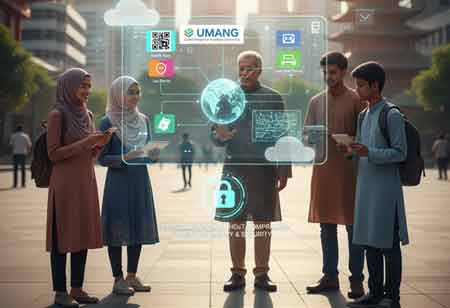THANK YOU FOR SUBSCRIBING
Citizen-Centric Cloud Applications in APAC
APAC governments are enhancing public services through citizen-centric cloud applications, striking a balance between personalization and data security and privacy, to achieve efficient and responsive digital governance.

By
Apac CIOOutlook | Friday, October 03, 2025
Stay ahead of the industry with exclusive feature stories on the top companies, expert insights and the latest news delivered straight to your inbox. Subscribe today.
Fremont, CA: The Asia-Pacific (APAC) region, home to some of the world's most digitally engaged populations, is witnessing a massive push by governments to leverage cloud technology for enhanced public service delivery. The shift is towards Citizen-Centric Cloud Applications—digital services that are highly personalized, accessible, and responsive, without sacrificing the fundamental requirements of data security, privacy, and sovereignty. This balance of personalization and robust protection is the core tenet of this new wave of cloud-powered digital governance.
The Imperative for Citizen-Centricity
Citizens across the APAC region increasingly expect government services to mirror the seamless, personalized experiences offered by leading e-commerce and technology companies. Cloud technology has emerged as the critical enabler of this transformation, providing scalability, flexibility, and advanced capabilities such as artificial intelligence (AI) and machine learning (ML). By leveraging the cloud, governments can elevate citizen experience through mobile-first, app-like platforms that unify services—such as India’s UMANG (Unified Mobile Application for New-age Governance)—or provide tailored, real-time information, as seen in safe travel concierge applications deployed by airports. Cloud platforms also enhance speed and agility, with low-code and no-code development tools enabling the rapid rollout of new services, as demonstrated during the pandemic through benefit portals and exposure-tracking tools. Moreover, the shift from costly, on-premises legacy systems to a cloud-based operating expenditure (OpEx) model delivers significant cost efficiencies, allowing public agencies to redirect resources toward innovation. Cloud-based architectures strengthen resilience by dynamically scaling to meet surges in demand—such as tax season or public health emergencies—while ensuring high availability and robust disaster recovery.
The Pillars of Personalization Without Compromise
Achieving meaningful personalization in public services—where offerings are tailored to individual needs, preferences, and demographics—requires the ethical and secure use of citizen data. This challenge becomes especially critical in the diverse and sensitive APAC landscape. Governments across the region are introducing stricter data sovereignty and protection laws, such as Singapore’s PDPA and India’s DPDP Bill, making it essential for cloud solutions to embed compliance frameworks aligned with local regulations. In many cases, this also involves favoring regional or in-country data centers to strengthen public trust. Equally important is ensuring robust security and privacy; citizens must be confident that their information is protected. Modern cloud providers address this through industry-aligned security and compliance frameworks (e.g., HITRUST, StateRAMP), while advanced practices like confidential computing and data classification further safeguard sensitive data. Beyond compliance and security, delivering citizen-centric services demands interoperability, supported by cloud APIs and prebuilt connectors that enable seamless integration across government departments—from national agencies to local authorities—and even legacy mainframe systems, ensuring a unified view of citizen needs. As advanced personalization increasingly leverages AI and ML, these technologies must remain human-centered, transparent, and accountable. Strong data governance and ethical oversight are essential to ensure that algorithms enhance service delivery equitably, without compromising trust.
The APAC public sector is at an inflection point, moving beyond mere digitization to a model of genuine citizen-centricity powered by the cloud. The goal is to deliver services that feel intuitive, timely, and personally relevant, matching the convenience of the private sector while adhering to the highest standards of public trust. By prioritizing data sovereignty, robust security, and ethical governance alongside technological innovation, governments in the region can successfully deliver on the promise of Personalization Without Compromise, forging a new, more responsive era of digital governance.





